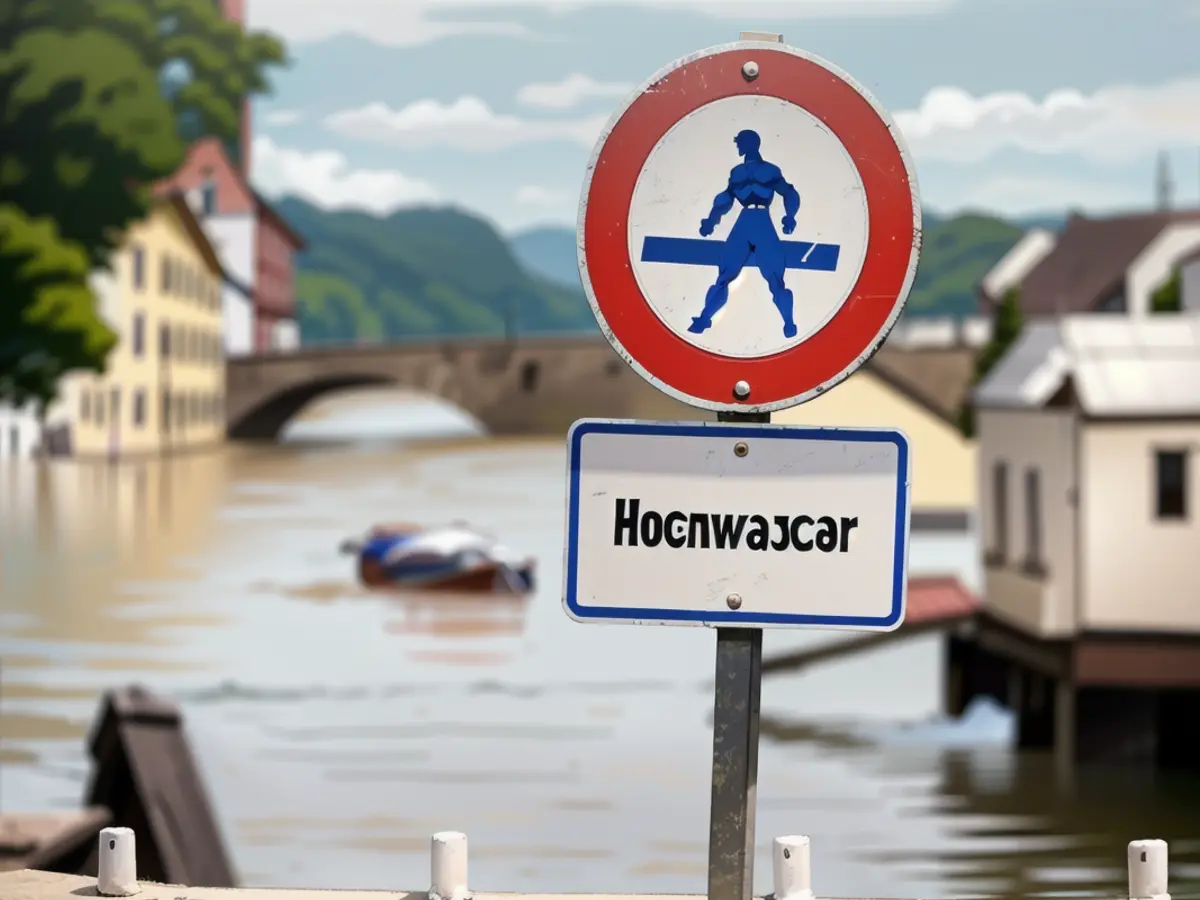Weather Science - Certain weather circumstances result in devastating floods.
Where roads once stood, rivers now flow, and where fields along with sports grounds were, only murky brown waters can be spotted. The recent flooding in southern Germany is incredibly intense. Experts can describe how this tragedy happened.
Did the rainfall have unusually high intensity?
Thomas Deutschländer, a climate expert from the German Weather Service (DWD), says, "It's quite a lot, but not completely unusual." At about 20 to 30 stations across southern Germany, the DWD has measured rainfall comparable to what occurs only every 50 or 100 years. Hence, these are aptly termed as "century rainfalls," mainly in and around Augsburg. The data is still provisional.
Why was there so much rainfall?
There's a unique weather pattern at play here, the so-called Vb weather condition, also called the 5B weather condition. "When it takes place, it often leads to a lot of rainfall," says meteorologist Kevin Sieck from the Climate Service Center Germany (Gerics) in Hamburg.
This refers to a low-pressure system that originates over the Mediterranean and then tracks eastward of the Alps. This can result in heavy rainfall in eastern Germany or southern Germany. "This time, the northern winds of the low-pressure region pushed the cloud masses against the Alps, thereby amplifying the rainfall further," the Gerics meteorologist reveals.
Were the floods also a consequence of the New Year's Eve floods?
No, back then, it was low-pressure systems from the Atlantic which made their way over us. Fred Hattermann from the Potsdam Institute for Climate Impact Research (PIK) mentions, "Then, one low-pressure system followed another, causing heavy rain."
However, Vb weather conditions like the present one have also led to other critical floods in Germany. The researchers remind us of the century flood on the Elbe in 2002, the most expensive natural disaster in German history. The severe flood of 2013 was also due to similar weather conditions.
Is climate change responsible for the floods?
"It's hard to correlate this specific event with climate change," says PIK researcher Hattermann. Nonetheless: Experts like those from PIK and the World Weather Attribution maintain that extreme rain events have increased in frequency and intensity due to human-induced climate change. This especially pertains to Europe.
Therefore, floods are more likely to occur and be more severe in the future. DWD's climate expert Deutschländer, on the other hand, expresses caution. Up to now, the data only exhibits tendencies, but they are not yet statistically significant.
Is it accurate to say that warmer air can hold more water?
Yes, a warmer air by one degree can carry seven percent more moisture. So, the water-carrying capacity of the atmosphere is increasing substantially due to global climate change. In the Adriatic, where the low-pressure system formed, the Mediterranean is currently around two degrees warmer than ordinary for this time of year. "This warm, moist air made its way to us," says hydrologist Hattermann.
So, should we anticipate more significant rain events?
Even DWD's more cautious expert concedes, "Since more moisture is being absorbed into the clouds, I would say we should anticipate this happening."
Hattermann from PIK insists that rainfall events are not evenly distributed. It all depends on how the global winds disperse the precipitation. In many regions, droughts are becoming more prolonged due to climate change.
When it rains, it seems to rain harder. "The precipitation we see particularly in summer tends to be more intense," explains the PIK researcher. Meanwhile, shorter stretches of rain with the kind of light shower nature requires may be less prevalent.
In other words, we're likely to experience more frequent intense rain and less frequent light rain showers. Stay prepared, folks!
Read also:
- The flooding in southern Germany has significantly impacted areas near the Mediterranean Sea.
- East Germany, unfortunately, did not escape the wrath of the heavy rain and resulting floods.
- The unusual climate change in South Germany has been a subject of interest in the field of science.
- The climate change-induced rainfall patterns led to the century rainfalls in Baden-Württemberg.
- The Potsdam Institute for Climate Impact Research (PIK) has linked climate change to an increase in extreme rain events in Germany.
- The storm in Hamburg resulted in significant flooding across various regions, including Offenbach.
- The German Weather Service (DWD) has recorded heavy rainfall in several locations, including rivers in Bavaria.
- The Alps have seen an increase in heavy rainfall due to climate change, leading to floods in surrounding areas.
- The heavy rain in southern Germany has led to flooding on sports fields in various parts of Southern Germany.
- The meteorologists are closely monitoring the weather situation in the Eastern part of Germany to predict any possible flooding.
- The flooding in Augsburg is a stark reminder of the impact of climate change and the need for better flood management strategies.
- The German cities like Hamburg and Augsburg have been particularly affected by the floods, resulting in significant damage and displacement.
- The recent floods in southern Germany prove that even in developed countries like Germany, floods can be devastating due to climate change and extreme weather events.






